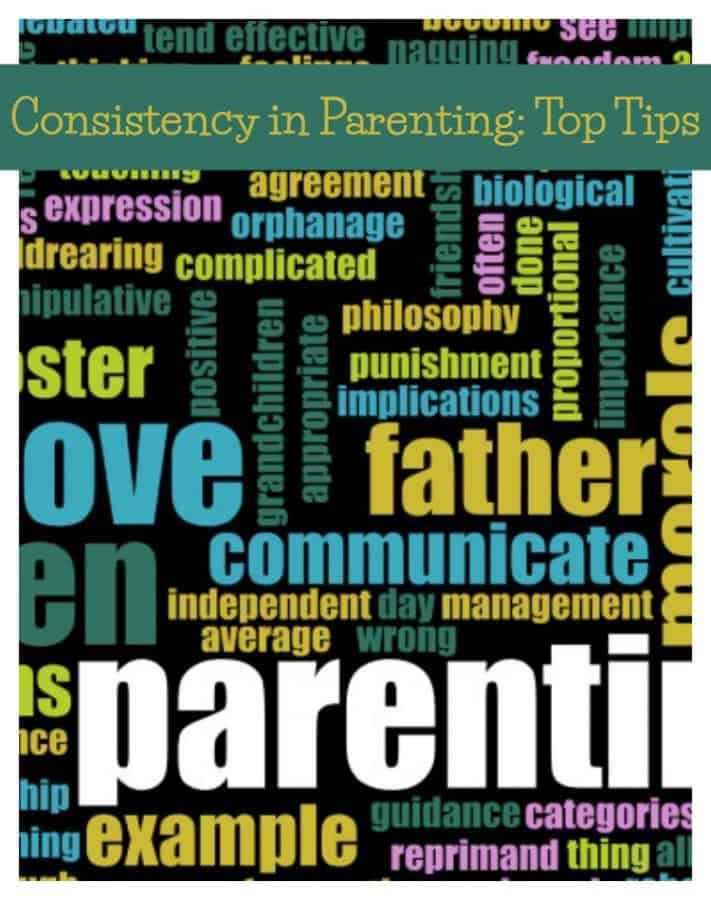Consistency in Parenting: Top Tips

Consistency in Parenting: Top Tips
Consistency: how many parents sigh or roll their eyes when they hear that word? That’s because consistency is tough, and most parents don’t feel like they are nearly consistent enough.
No one is consistent 100% of the time. But aiming for consistency the majority of the time is not unreasonable or impossible. Here are some top tips on how to be more consistent as a parent that should help.
1. Why Be Consistent?
What’s the big deal about consistency anyway? The point of all this consistency talk is simply this: if kids know the consequences of a behavior, and there’s no area of doubt, then they’re probably more likely to modify their behavior. Consistency puts action behind your words; it shows your kids that you do mean what you say. It gives your words power, and prevents you from having to take action every single time (often a different action every single time, which gets exhausting). So it pays to deliver!
2. The Role of Planning
Planning ahead is important for consistency. Determine what your expectations for your kids are, from the broad (doing well in school) to the specific (behaving in the grocery store). Armed with your knowledge of your kids’ idiosyncrasies – you know what sets them off and you know the “problem areas” – come up with a plan of action based on their behavior and the behavior you expect. Then calmly implement your plan…consistently in your parenting helps keep the planning in order.
3. Involve the Other Parent in your Parenting Plan
Whether you are in a traditional marriage or not, if Mom and Dad are both in the home, it’s important for them to be on the same page regarding discipline and expectations. So a good idea is to sit down with the other parent and discuss your plans of action. Having both parents on board with the plan of action, expectations, and consequences just adds to the consistency.
4. Involve the Kids
Really? Yes, involving the kids is a healthy idea, sources say. Let them have a voice in the consequences, and make sure they understand the expectations. It’s not really fair to spring the consequences and expectations on them unexpectedly; it makes more sense for kids to follow rules if they know the rules (and the consequences of breaking them) ahead of time!
5. Consistency Is Not the Same as Inflexibility
There’s really no need to be rigid and inflexible for fear of appearing inconsistent. Sometimes, flexibility is required, and that should not undermine your consistency if you go about it the right way. For example, explain the change to your child – if it’s an exception to the usual rule, let them know why and that this is not going to be a habit. Or maybe one of the consequences does need to be adjusted; talk it over as a family and agree to make the change together.
This is not being inconsistent; it’s being flexible and willing to make changes where necessary, which is likely as good a model for your children as being consistent!
What's Your Reaction?
Newly middle-aged wife of 1, Mom of 3, Grandma of 2. A professional blogger who has lived in 3 places since losing her home to a house fire in October 2018 with her husband. Becky appreciates being self-employed which has allowed her to work from 'anywhere'. Life is better when you can laugh. As you can tell by her Facebook page where she keeps the humor memes going daily. Becky looks forward to the upcoming new year. It will be fun to see what 2020 holds.



